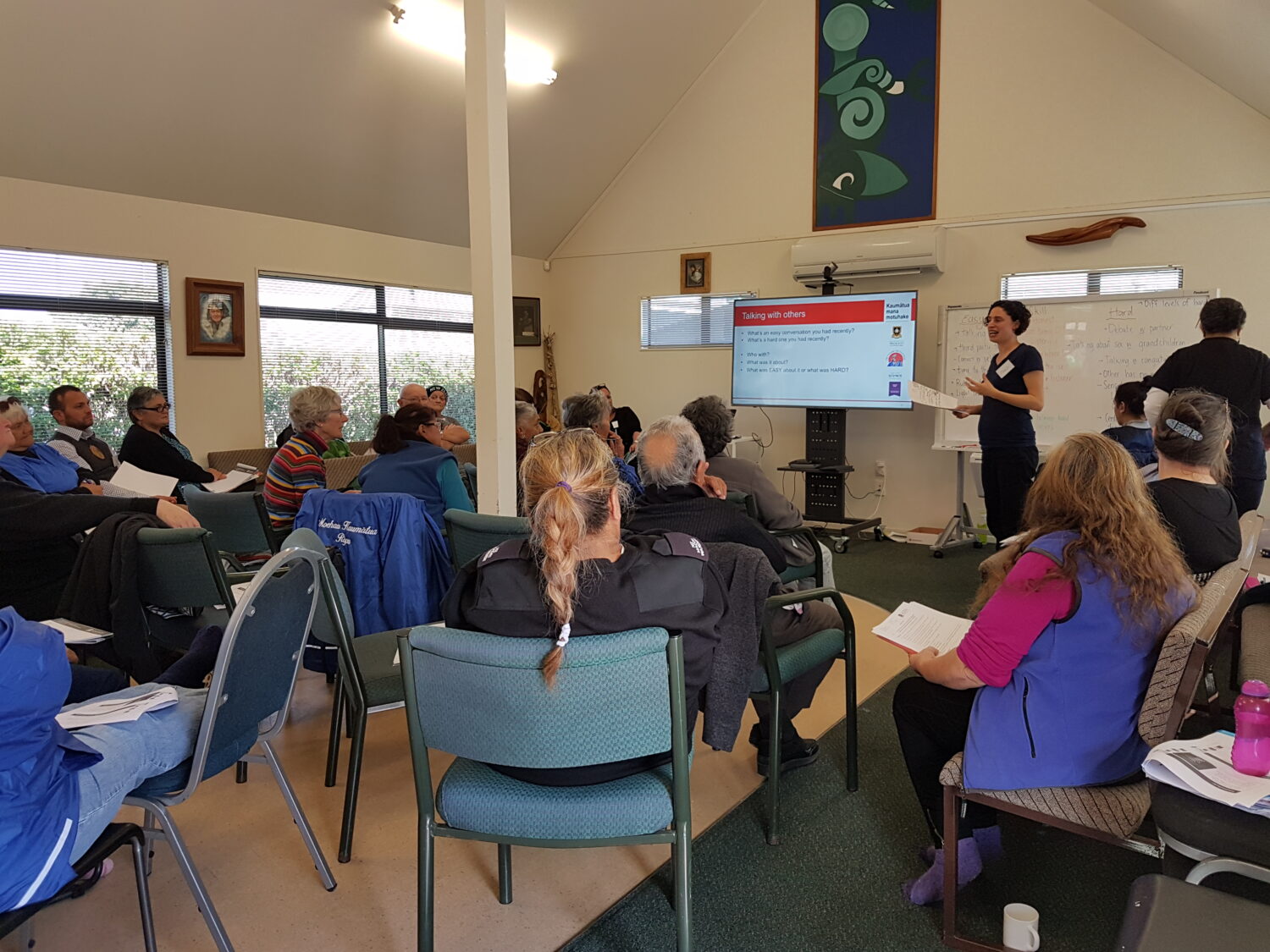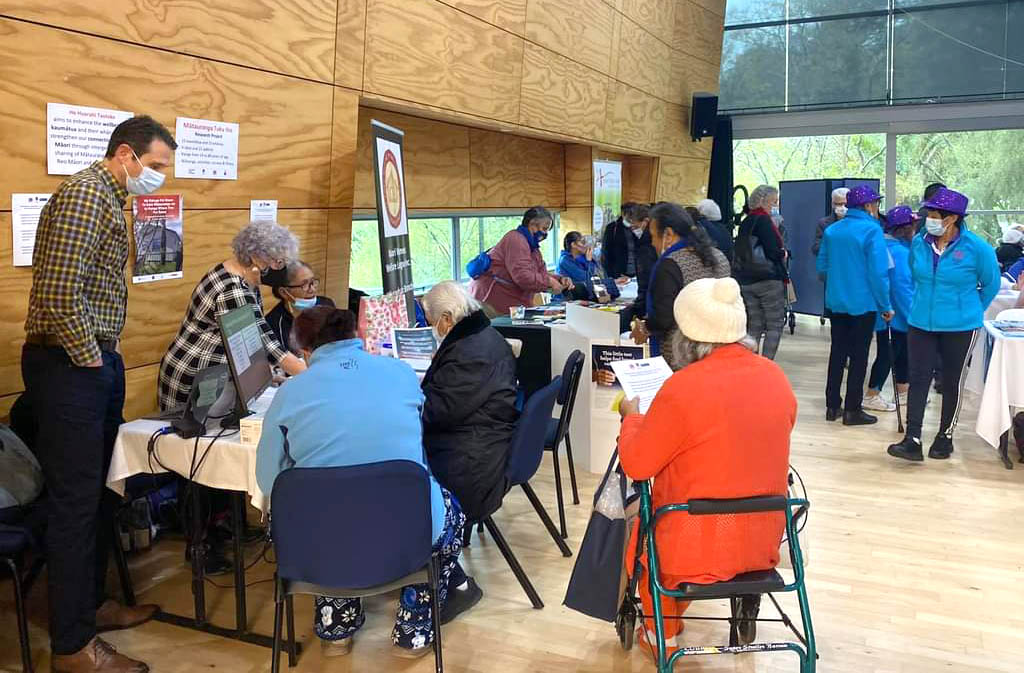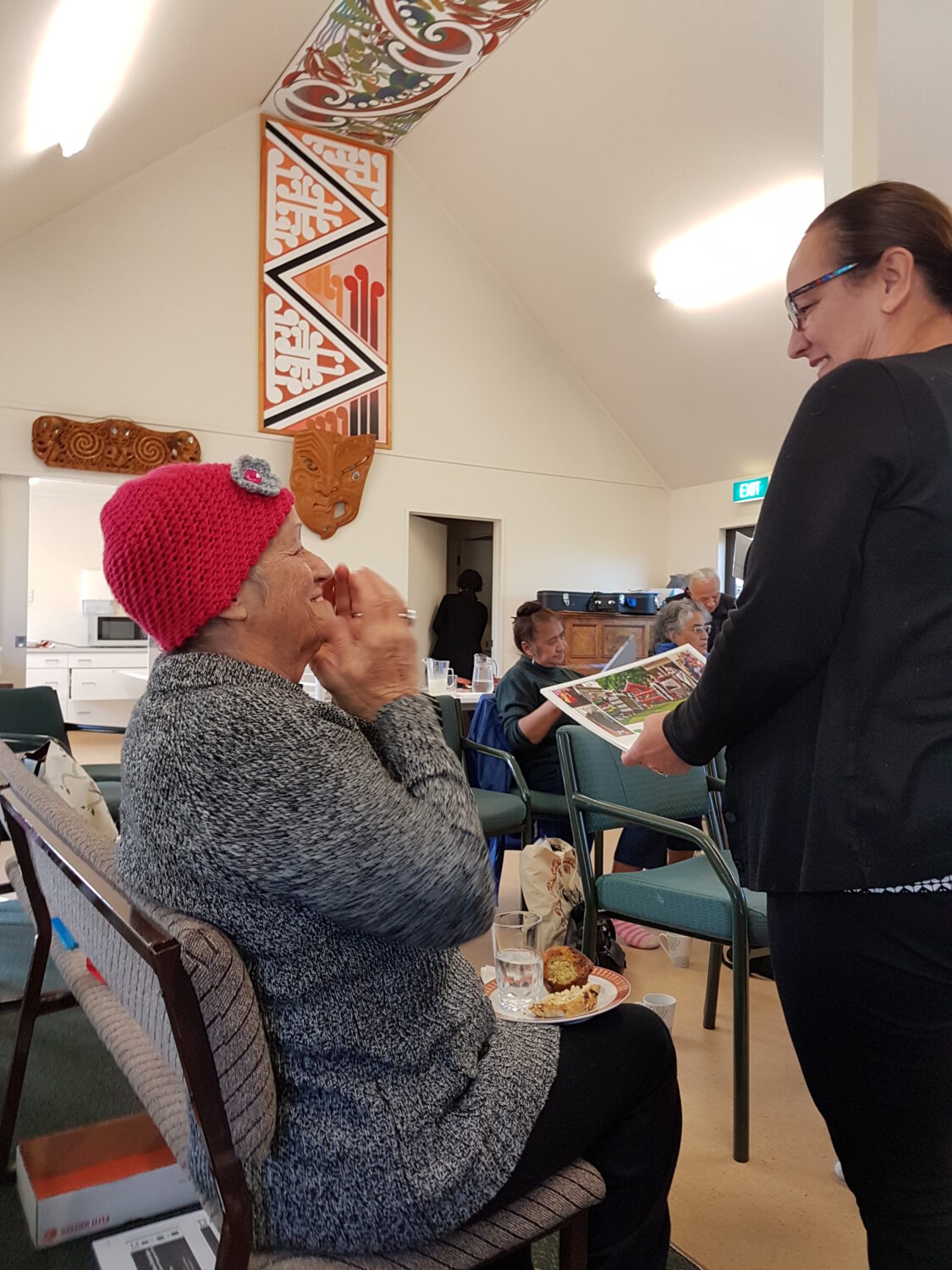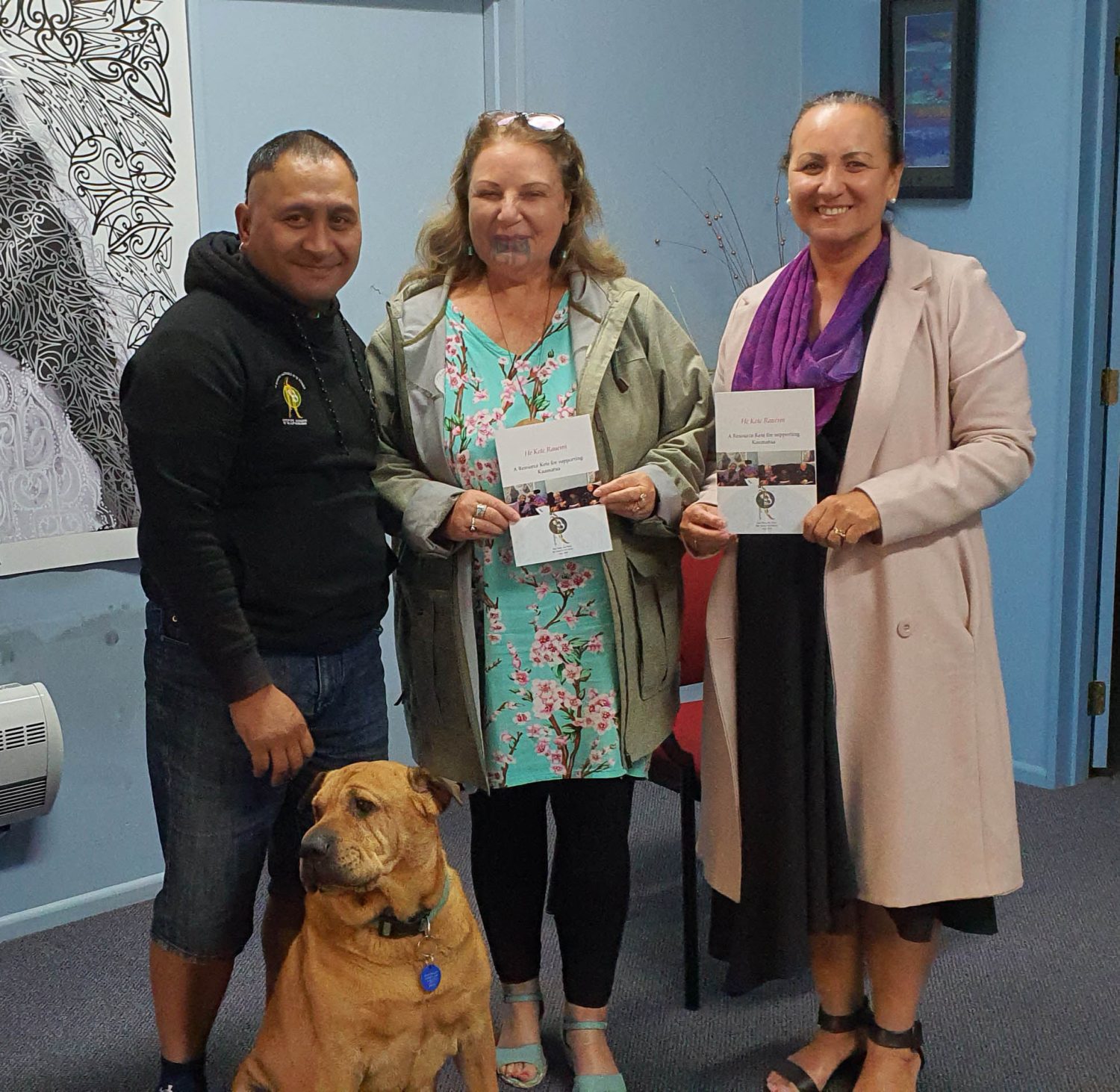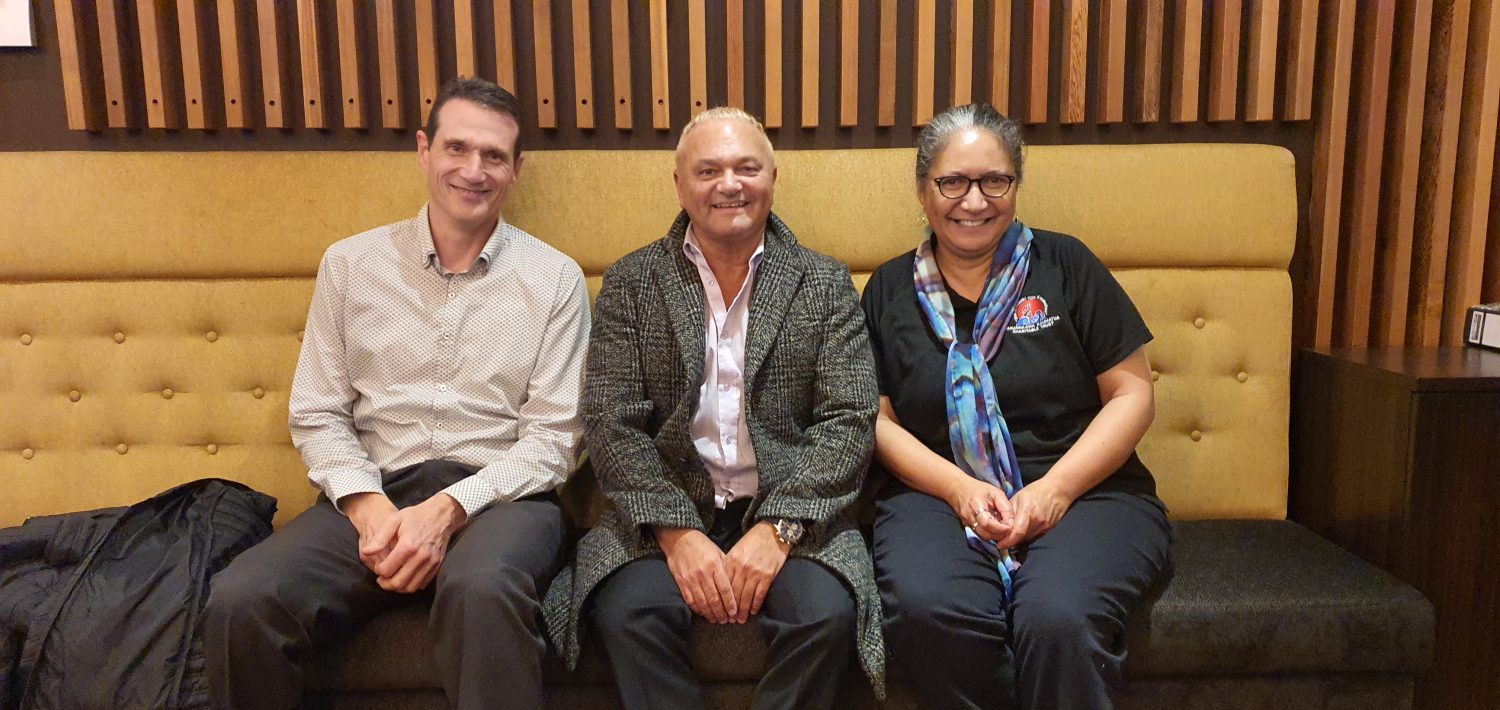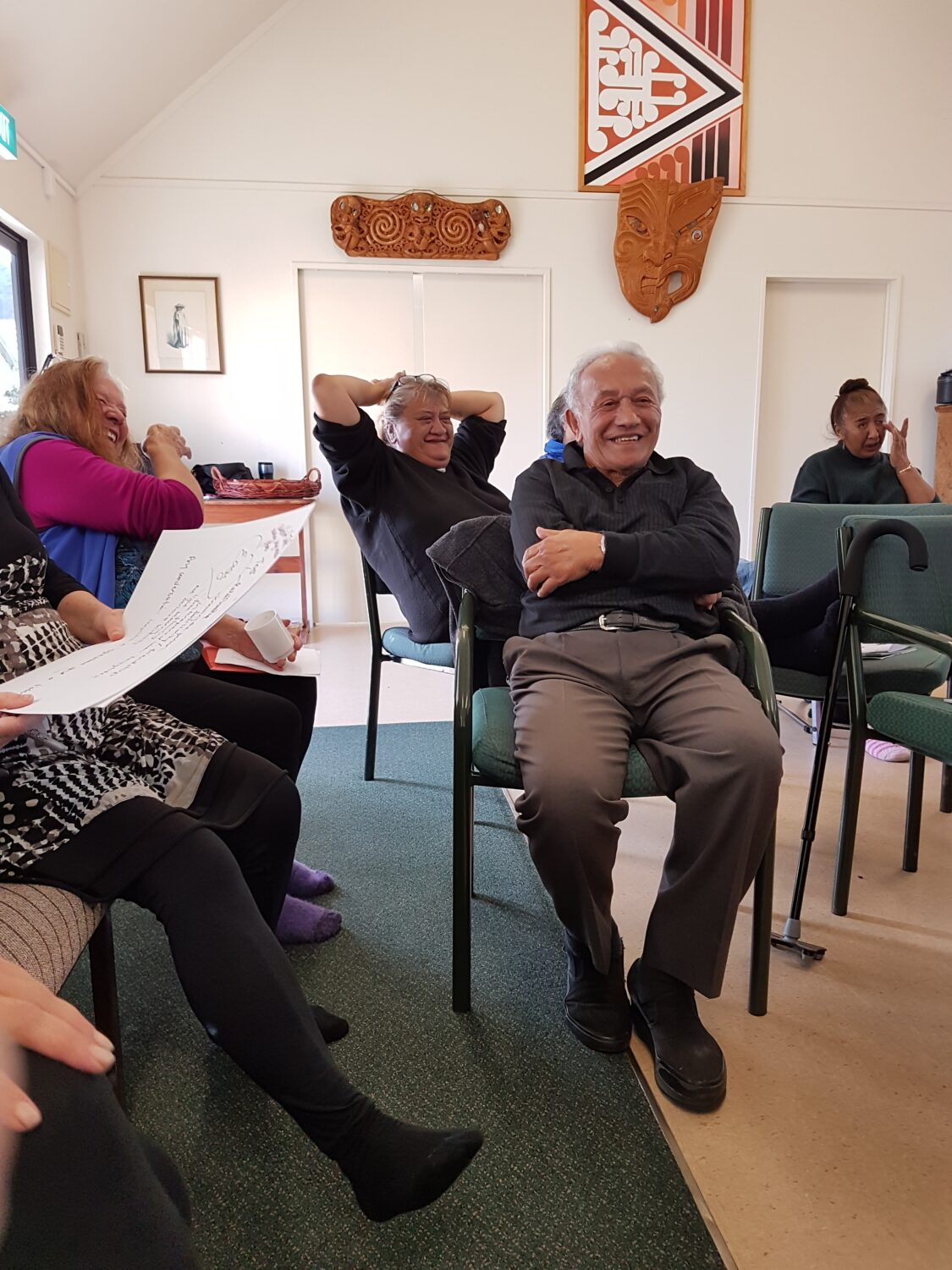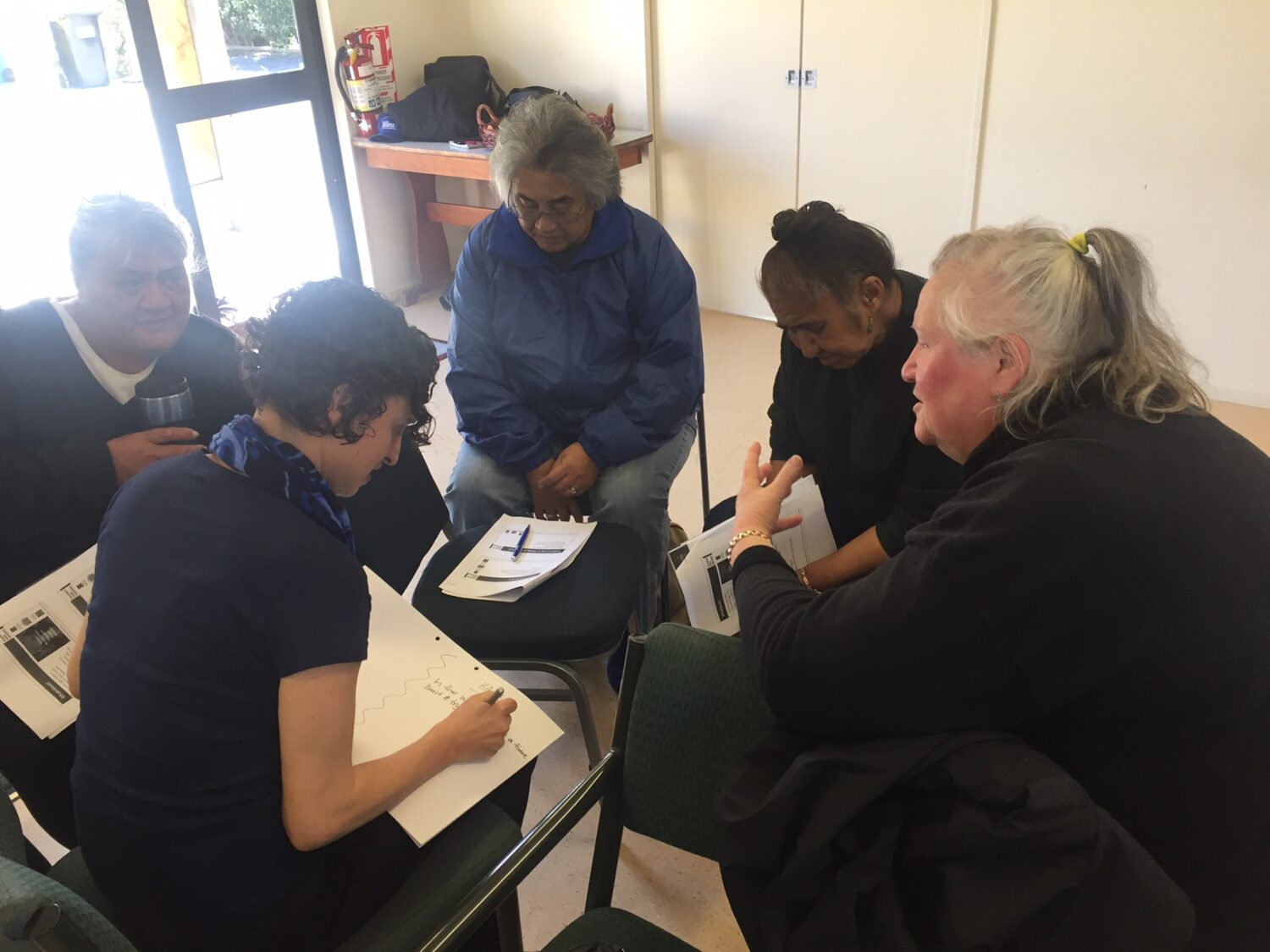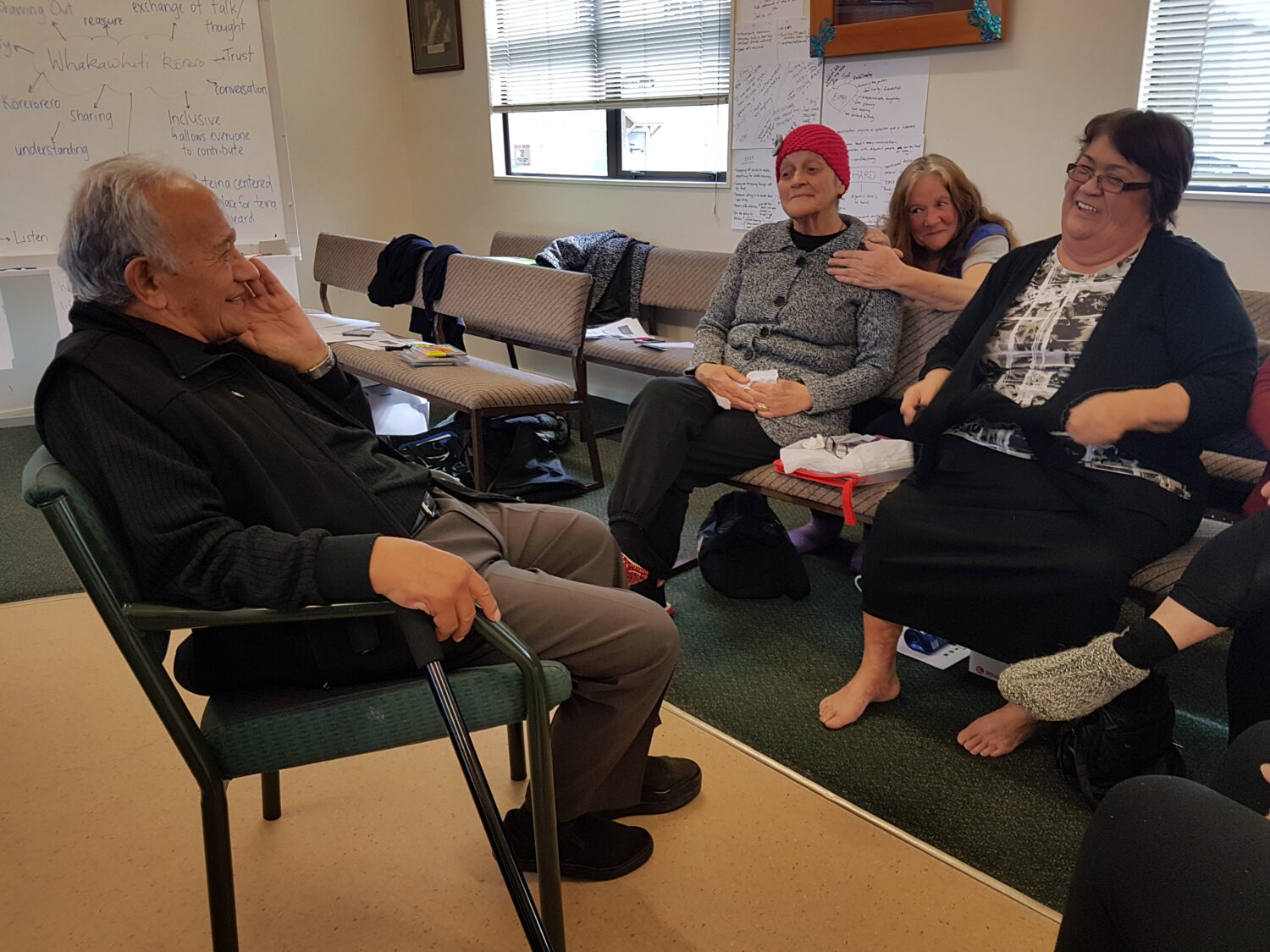Ageing is part of life, and kaumātua see it as a positive development as it means that you are held in high esteem by the community. Rather than kaumātua ‘retiring’, they enter into another phase of life that can have significant cultural, hapū and iwi expectations and commitments.
Through leadership and by sharing knowledge with the next generations, kaumātua often possess a unique cultural authority. They have lived through the ups and downs of life and possess significant knowledge and experience. So what better way to help kaumātua age well than by including them in the research that will help kaumātua and their kin across the motu?
The Phase 1 research project, Kaumātua Mana Motuhake, was a novel study that created and evaluated a peer-mentorship program to meet the health and social service needs of kaumātua. This was aimed at empowering kaumātua to live independently, with dignity, and based on their own worldview. With the overwhelming success of this initial project, Ageing Well committed $2.5M in funding to the research team to expand the scope and reach of the project in the next phase.
The phase 2 research programme, Kaumātua Mana Motuhake Pōi (colloquially known as KMM Pōī), is studying further the tuakana-teina (older sibling-younger sibling) peer intervention model, in addition to an intergenerational model for increasing physical activity and cultural knowledge exchange.
What makes this research innovative is that it utilises a Kaupapa Māori model that supports and promotes the independence and autonomy of kaumātua who desire lives of longevity, quality, and equity in positive ageing.
Coming at the research from a truly collaborative standpoint, researchers listened to what is important to kaumātua. Building upon kaumātua strengths of enhancing hauora (a holistic approach to health) and mana motuhake (autonomy, identity, and self-determination), this research programme establishes a collaborative research network including academic and community researchers, kaumātua service providers, and other stakeholders to achieve the two main objectives:
1) to increase service access and utilization in order to support kaumātua with the greatest health and social needs through a tuakana-teina peer educator model; and
2) to increase physical activity and mātauranga (cultural knowledge) exchange (including te reo Māori) through intergenerational models of learning.
What makes this research innovative is that it utilises a Kaupapa Māori model that supports and promotes the independence and autonomy of kaumātua who desire lives of longevity, quality, and equity in positive ageing.
The programme is co-designed, co-implemented, and co-evaluated by the research team and the community researchers, and grounded in cultural revitalisation to enhance hauora and mana motuhake. In essence, it is helping kaumātua providers develop culturally appropriate and sustainable projects that support kaumatua to age well.
 A key aim for our project is to use research and research capacity for action to enhance the wellbeing of kaumātua and their communities."
A key aim for our project is to use research and research capacity for action to enhance the wellbeing of kaumātua and their communities."
About the research
Though this research is still ongoing and has been impacted by COVID-19, there is much to be buoyed in the mid-stage of this study.
One of the biggest impacts the KMM Pōī programme has already achieved has been the continued growth of the Kotahitanga Research Network (KRN), a collective of kaumātua service providers, researchers, and other stakeholders.
Originally set up for the Phase 1 project, the KRN facilitates collaborative identification of key kaumatua-centric research issues, helps to develop the research capacity of providers, share research findings, conduct research that will lead to action, and generate evidence to inform policy and service development that impacts positively on kaumatua health and wellbeing. The network is expected to significantly increase the adoption of the research findings since stakeholders and partners contribute substantially to the creation of the research programme, therefore magnifying the impact of the projects.
 “A key aim for our project is to use research and research capacity for action to enhance the wellbeing of kaumātua and their communities." -- Professor John Oetzel, Co-Lead PI
“A key aim for our project is to use research and research capacity for action to enhance the wellbeing of kaumātua and their communities." -- Professor John Oetzel, Co-Lead PI
Currently, the research team is continuing their emphasis on kaupapa kaumātua research and engagement. A kaumatua-led Advisory Board and two End-user led Expert Advisory Groups are providing sound guidance and direction for the study. For both the Tuakana-Teina and Mātauranga project teams, a high level of engagement with the collaborative partners has facilitated genuine collaboration and cemented the commitment for all parties.
“A key aim for our project is to use research and research capacity for action to enhance the wellbeing of kaumātua and their communities. The advisory boards and research network provide avenues for shared learning and advocacy to facilitate this action,” said co-PI Professor John Oetzel.
In the Tuakana-Teina project, the study is in full swing and is expected to be completed shortly, with the findings and assessment of the programme commencing once the data has been collected. For the Mātauranga project, the co-design of the project scope was completed alongside service providers and the Expert Advisory Groups, and is still currently in motion.
The KMM Poi programme is due to be completed in 2024.
{Images: Kaumātua Mana Motuhake Poi Research Photo Archive}
